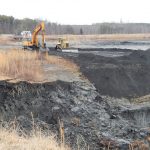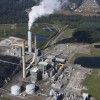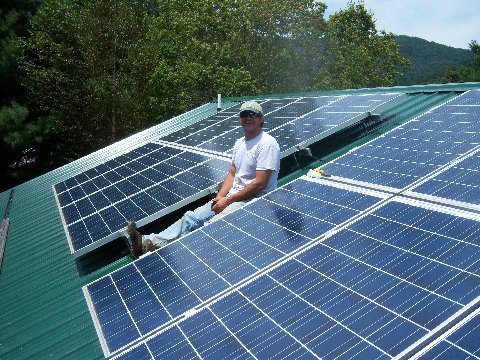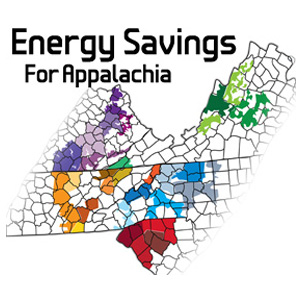Posts Tagged ‘Electric Utilities’
Eliminating poverty housing with efficient and alternative energy use
When North Carolina’s Ashe County Habitat for Humanity formed five years ago, seven people came together to study how to best build a home. They made a commitment not only to affordability, but also to energy savings, and the board voted to build all Ashe County Habitat houses to maximize efficiency and place an emphasis on alternative forms of energy.
Read MoreTurning down the heat: A collaborative effort to reduce energy bills
Extreme temperatures can send electric utility bills skyrocketing across most of North Carolina and place high demands on the state’s electric utility infrastructure. Fortunately, proven models exist that expand access to financing for energy efficiency improvements for everybody, including those who may not qualify for loans under traditional underwriting criteria.
Read More“It’s just vitamins!” Industry confuses residents on coal ash safety
Duke Energy and the N.C. Department of Environment and Natural Resources continue to confound and confuse families that have the unfortunate luck of living in close proximity to the utility’s coal ash lagoons. So citizens and county officials are stepping in to help residents air their frustrations and, hopefully, to receive some answers.
Read MoreA time of transition: APCo’s latest Virginia generation plan
It’s like Christmas in July, at least for those of us who get excited about energy news. On Wednesday Virginia’s utilities released their long-term plans to meet demand. Here we unwrap that bright shiny package for a look at what Appalachian Power is pursuing between now and 2029.
Read MoreSupreme Court delivers blow to EPA’s mercury rule
In a major decision today, the Supreme Court ruled the U.S. Environmental Protection Agency did not properly consider costs when it created a rule to limit mercury emissions from power plants. But the agency has a mandate and a clear path forward to protect public health by limiting emissions of mercury and other toxic air pollutants.
Read MoreDuke expands coal ash cleanup, but leaves N.C. communities in danger

Video illustrates need for energy efficiency in the High Country

Keep the Clean Water Act going strong
Last week, the U.S. Environmental Protection Agency ended a decade of confusion with the release of a long-awaited Clean Water Rule, which clarifies the scope of waters that are protected under the Clean Water Act. As the EPA pursues updates to the “effluent limitation guidelines,” we hope the Obama administration ready to continue the trend of strengthening and modernizing the Clean Water Act.
Read MoreA “crass abuse of power” in the N.C. Senate
The disgust with North Carolina Sen. Bob Rucho today is broad and bipartisan. Yesterday in the Senate finance committee, which he chairs, Rucho not only limited debate on provisions of HB332, which would freeze the state’s highly successful Renewable Portfolio Standard, he refused to allow an individual tally of votes and declared a failed bill passed.
Duke Energy to close aging Asheville coal plant








